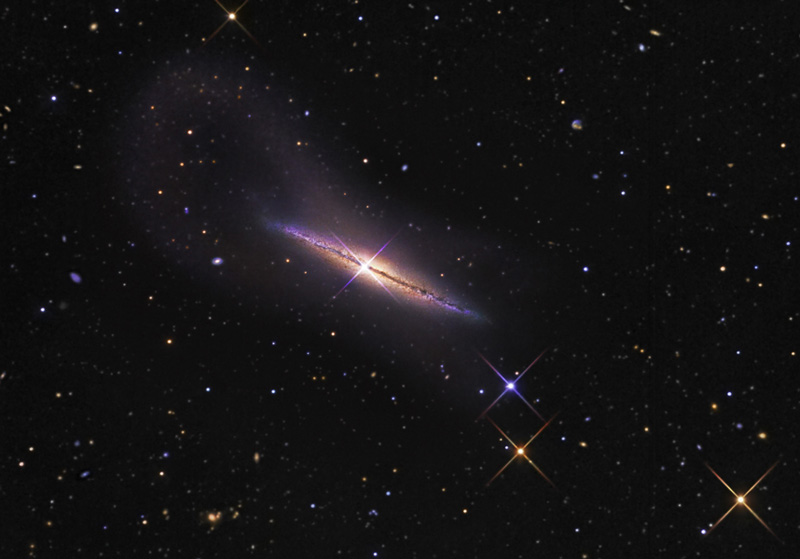
|
Credit & Copyright: R Jay Gabany
(Blackbird Observatory) - collaboration;
D.Martínez-Delgado(IAC,
MPIA),
M.Pohlen (Cardiff), S.Majewski (U.Virginia), J.Peñarrubia (U.Victoria), C.Palma (Penn State)
Explanation:
Nearly 50 million light-years away in the constellation Ursa Major,
NGC 4013 was long considered an isolated island
universe.
Seen edge-on, the gorgeous spiral
galaxy was
known for its
flattened disk and central bulge of stars, cut by silhouetted dust
lanes.
But this
deep
color image of the region reveals a previously unknown feature
associated with NGC 4013, an enormous, faint looping structure extending
(above
and toward the left) over 80 thousand light-years from the galaxy's
center.
A detailed exploration of
the remarkable
structure reveals it to be a
stream of stars originally belonging to another galaxy, likely a smaller
galaxy
torn
apart by gravitational
tides as it merged with the larger spiral.
Astronomers argue that the newly discovered tidal stream also explains a
warped
distribution of neutral hydrogen gas seen in
radio
images of
NGC 4013 and offers
parallels to the
formation of
our own Milky Way galaxy.
M.Pohlen (Cardiff), S.Majewski (U.Virginia), J.Peñarrubia (U.Victoria), C.Palma (Penn State)
|
January February March April May June July August September October November December |
| ||||||||||||||||||||||||||||||||||||||||||||||||
NASA Web Site Statements, Warnings, and Disclaimers
NASA Official: Jay Norris. Specific rights apply.
A service of: LHEA at NASA / GSFC
& Michigan Tech. U.
Based on Astronomy Picture
Of the Day
Publications with keywords: spiral galaxy
Publications with words: spiral galaxy
See also:
